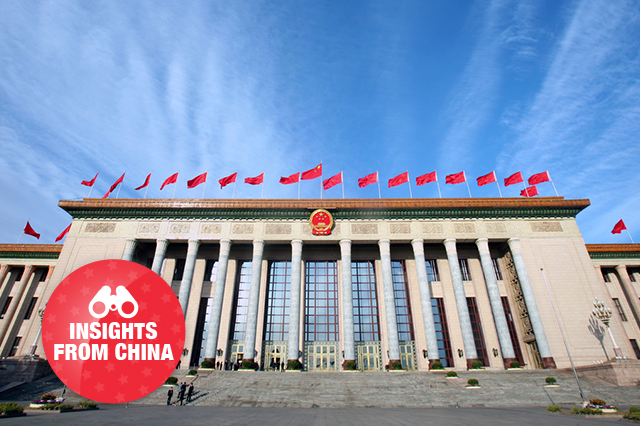
Nitheesh NH
The second session of 13th National Committee of the Chinese People’s Political Consultative Conference (CPPCC), the country’s top political advisory body, commenced on March 3. Two days later, the second session of the 13th National People’s Congress (NPC, China’s top legislative body) started. These meetings are held annually, usually in March. The two meetings are known as the “lianghui” (“two sessions”) and form one of the most important annual political events in China, bringing together the nation’s politicians, business and social leaders to discuss the nation’s performance in 2018 and plans for 2019.
These are the highlights.
China Will See Slower Growth in 2019
As presented by Premier Li Keqiang at the NPC meeting, China expects growth to slow in 2019, although from a fairly high rate so we expect the economy to enjoy continued expansion, albeit at a slower rate:
- The GDP growth target will be 6.0-6.5% in 2019, slightly below actual growth of 6.6% in 2018.
- Energy consumption per unit of GDP is expected to drop around 3% in 2019, compared with a drop of 1% in 2018.
- The urban employed population is expected to increase by around 11 million in 2019, below 13.6 million rise in 2018.
- An estimated 10 million people living in rural areas will be lifted out of poverty in 2019, compared with roughly 14 million in 2018.
- Foreign-invested companies will enjoy the same rights as domestic companies to participate in drafting standards and bidding for government procurement projects.
- Foreign investors' capital contribution, profits and capital gains made in China will be freely transferable overseas, either in yuan or in another currency.
- Common concerns among foreign investors such as compensation, protection of intellectual property rights and the forced transfer of technology will be addressed.
- Pony Ma, an NPC Deputy and Chairman and CEO of Tencent, suggested Chinese network providers speed development of 5G and IPv6 technologies for commercial use.
- Lei Jun, an NPC Deputy and CEO of phone manufacturer Xiaomi, called for the acceleration and expansion of 5G-enabled applications, notably 5G-enabled Internet of Things systems.
- Robin Li, a CPPCC delegate and CEO of Baidu, called for top-level design and research into ethics issues concerning artificial intelligence, to be led by Chinese government.
- Ding Lei, a CPPCC delegate and CEO of NetEase, pointed out that AI should be used to better understand suppliers’ needs, optimize production and improve development of China’s manufacturing industry.
- Qingfeng Liu, an NPC deputy and chairman of USTC iFLYTEK Science and Technology, believes that 2019 will be a year of mass-scale AI application, and urged the Chinese government to speed up the construction of AI infrastructure.